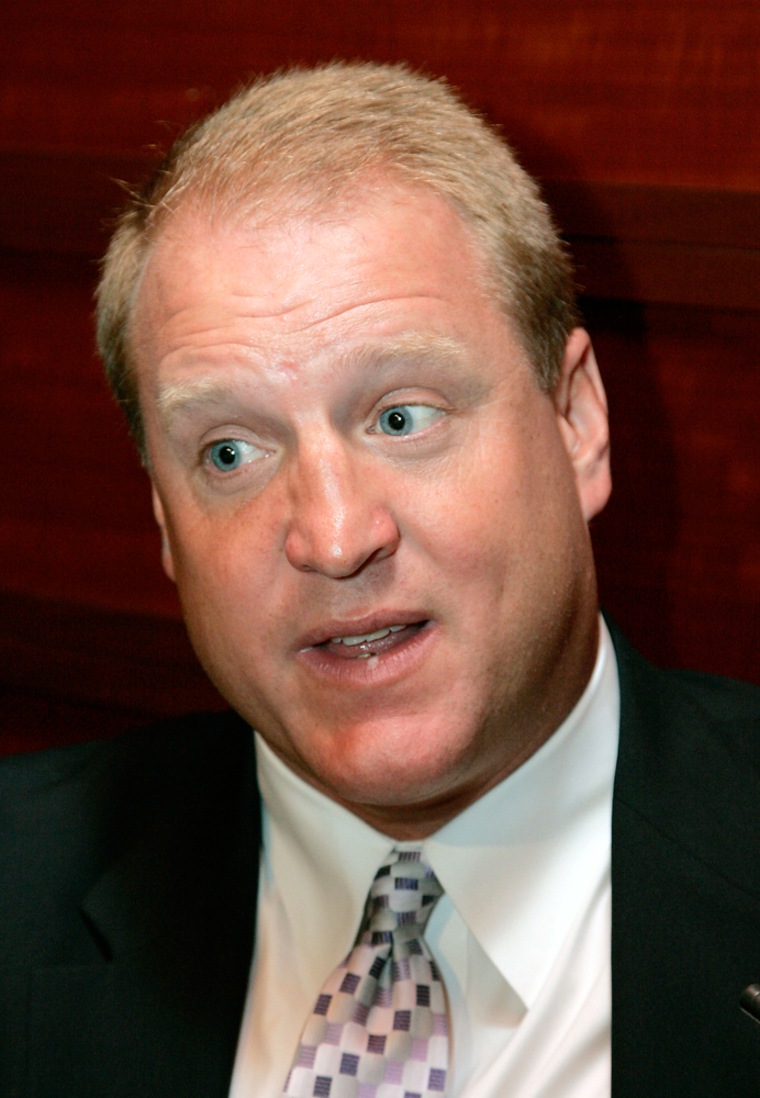Like many Democratic governors today, Iowa's Chet Culver won in 2006 on the strength of ambitious and expensive promises such as universal preschool and a plan to bolster alternative energy industry.
But persistent budget woes have forced the 43-year-old Culver to trim virtually all aspects of government, including social programs he pledged to expand, and a stern re-election race is ahead this fall.
"We're making tough cuts which will result in pain," said Culver, whose poll numbers have tumbled as the economy has tanked. "We're not closing early childhood centers, we're reducing some of the appropriations. We're not going back on our commitment to teachers, but there have been reductions in resources."
Culver is not alone: 37 governors are on the ballot, and fighting as much against a deep and lingering downturn as they are against political rivals.
It's a challenge that in almost defies partisanship, with Republicans such as California's Arnold Schwarzenegger confronting the worst budget crisis in a generation.
The problems, however, may be most acute for Democrats. They are defending 19 seats while scaling back the kind of spending that strengthens their appeal to important groups such as minority voters, teachers and other unionized public employees.
"In a recession, there's a lot less money for governors to work with and they get blamed for cutting social programs and not following through on campaign promises," University of Denver political scientist Seth Masket said. "It's a particularly tough environment for Democratic incumbents because they are seen as the party in power."
Democratic prospects can be tied in part to President Barack Obama, whose popularity has dropped because of the jobless situation and a populist backlash against federal spending and rising deficits. Last year, Republicans captured governors' seats in New Jersey and Virginia from Democrats.
The outcome of governors' races this year will have a significant impact on Obama's political fortunes. Governors oversee the redistricting of their states' legislative and congressional districts after the 2010 census.
Colorado Gov. Bill Ritter, once considered a rising Democratic star, just dropped his bid for re-election after one term. His poll numbers were weak and he faced a strong challenge from former U.S. Rep. Scott McInnis, the likely GOP nominee. Colorado's budget shortfall has forced Ritter to make education cuts and he's angered state employees by directing them to take furlough days.
With similar woes, Wisconsin Democratic Gov. Jim Doyle surprised many when he decided to retire after two terms. Budget problems helped stymie Doyle's planned expansion of the state's Medicaid program and kept him from fulfilling a promise to support two-thirds of the education budget with direct state aid.
In Michigan, one of the most economically ravaged states, Democratic Gov. Jennifer Granholm is stepping down because of term limits and Lt. Gov. John Cherry announced last week he was leaving the race to succeed her. He was hurt by his ties to the incumbent.
In Ohio, another economically battered industrial state, Democratic Gov. Ted Strickland could face a tough re-election contest against former U.S. Rep. John Kasich, the likely GOP nominee.
Iowa, Colorado, Wisconsin, Michigan and Ohio were considered swing states in the 2008 presidential election, and Obama swept them, leading some analysts to envision a period of Democratic dominance in those states. But Obama's sinking numbers have affected the fortunes of many Democratic officeholders, including some prospects for governor.
"The map certainly has challenges for us," said Emily DeRose, spokeswoman for the Democratic Governors Association. She did point to states such as California, Rhode Island and Vermont where the party can pick up seats from the GOP.
For Democrats, however, there may be no governor more in trouble than Culver, the son of former U.S. Sen. John Culver, D-Iowa.
Chet Culver won in part on the strength of lavish promises. But with the recession cutting into Iowa's revenue, he commissioned a study on state spending; it recommended $341 million in cuts to the $5 billion budget. He ordered a 10 percent across-the-board cut in spending and pushed state worker unions to take unpaid furloughs and other concessions.
"A lot of them are really tough, and that's just the reality," Culver said of the budget cuts. "It's during tough times you have to provide leadership."
The backlash has been swift. While Democrats hold a majority of voter registrations in the state, Culver has drawn a field of four Republicans competing to oppose him, including four-term former Gov. Terry Branstad.
Recent polling has shown Culver trailing at least two of his potential GOP rivals, with Branstad posting a double-digit lead in a hypothetical matchup.
"He's vulnerable because he's overpromised," Branstad spokesman Tim Albrecht said. Culver adamantly resists that characterization.
"Governor Culver, along with governors on both sides of the aisle are facing unprecedented economic challenges due to the recession," Culver's office said in a statement. "These were challenges we did not create, but ones we had to meet."
